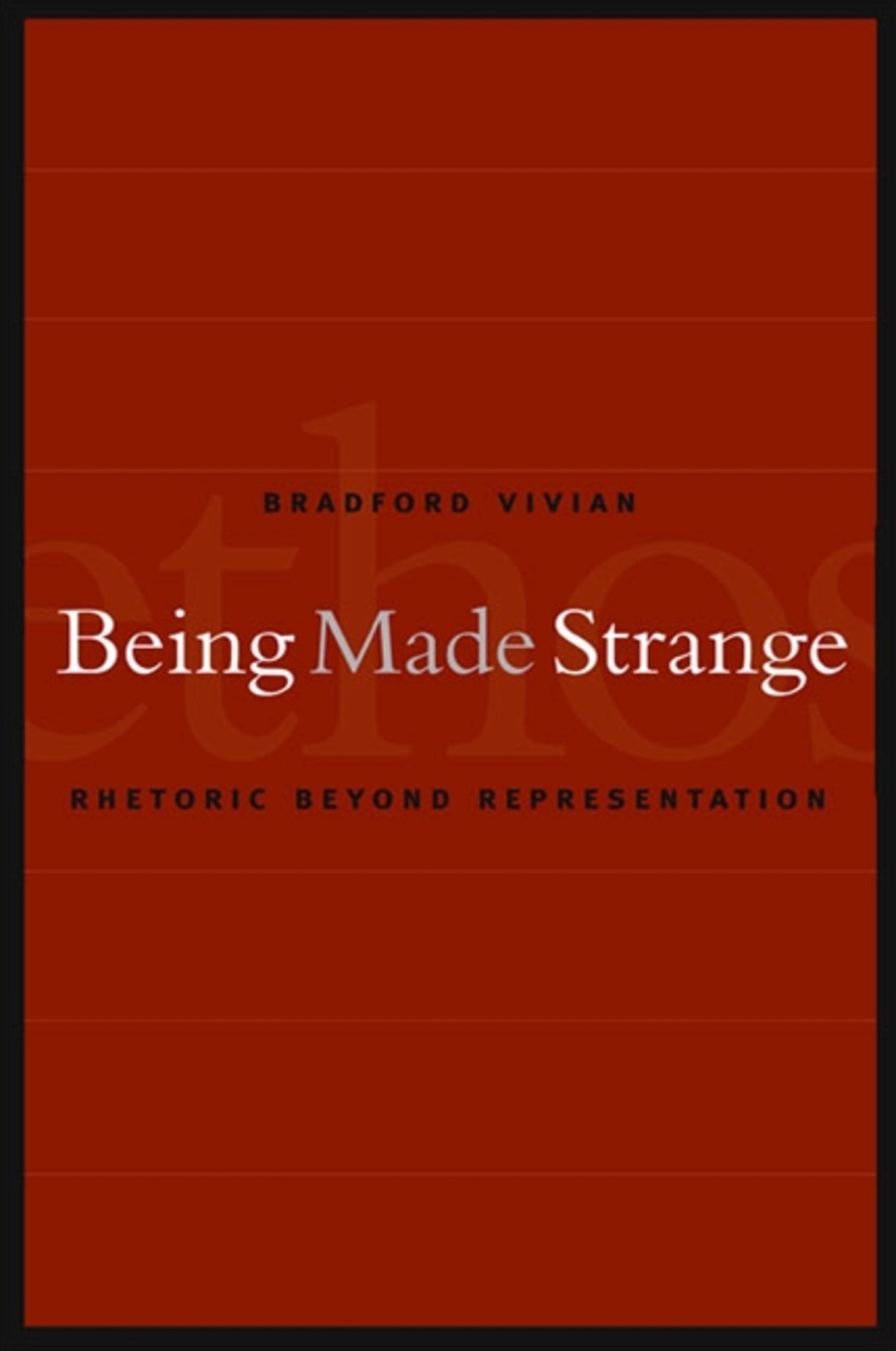We're sorry. An error has occurred
Please cancel or retry.
Being Made Strange

Some error occured while loading the Quick View. Please close the Quick View and try reloading the page.
Couldn't load pickup availability
- Format:
-
11 May 2004

Offers a revised understanding of human subjectivity that avoids the extremes of both traditional humanism and cultural relativism.
By elaborating upon pivotal twentieth-century studies in language, representation, and subjectivity, Being Made Strange reorients the study of rhetoric according to the discursive formation of subjectivity. The author develops a theory of how rhetorical practices establish social, political, and ethical relations between self and other, individual and collectivity, good and evil, and past and present. He produces a novel methodology that analyzes not only what an individual says, but also the social, political, and ethical conditions that enable him or her to do so. This book also offers valuable ethical and political insights for the study of subjectivity in philosophy, cultural studies, and critical theory.


"Acknowledging the importance of the 'middle voice' of rhetoric is a worthwhile endeavor. For this, Vivian's goals are to be applauded." — Rhetoric and Public Affairs
"This is a crisply written, broadly informed, and carefully argued work in which the defining tendencies of the Western rhetorical tradition, broadly conceived, are rethought. These tendencies, above all, those pertaining to universalization and representation, are suggestively rethought in light of Nietzsche, Foucault, Derrida, Deleuze, and other important theorists. Even where one is disposed to disagree with the author (indeed, especially at these points), one can learn much from this work. For it is a painstaking, honest, and admirably clear attempt to not only think anew what has been traditionally supposed but also what has, until now, remained unthought. The particular treatments of ethos, representation, memory, and silence are of value to virtually anyone working in the intersection among various disciplines (e.g., philosophy, rhetoric, literary theory, and cultural studies)." — Vincent Colapietro, author of Fateful Shapes of Human Freedom: John William Miller and the Crises of Modernity
"Rhetoric is recast in several ways here—and this should be the task of contemporary rhetoricians and rhetorical theorists—to attempt to re-vision rhetoric in ways that are appropriate for the twenty-first century. The author addresses issues of representation, the 'Other,' and silence, for example. I am not familiar with any text that so comprehensively approaches a transformation of the notion of rhetoric." — Karen A. Foss, coeditor of Contemporary Perspectives on Rhetoric, Third Edition
Preface
Introduction
Rhetorical Being
Part I: Beyond Representation
1. The Subject and Object of Representation
The Circle of Metaphysics
The End of Rhetoric?
A Crisis of Representation
The Subject and Object of Rhetoric
2. The Ideal of Rhetoric
Logocentrism and Rhetoric
Rhetoric in the Active Voice
Part II: Being Otherwise
3. Rhetoric in the Middle Voice
Rhetoric Made Stranger
The Middle Voice of Persuasion
Discourse, Form, and Ethos
4. Style without Identity
Style and Humanism
Style Redux
Politics, Ethics, and Alterity
Rhetoric and Style Reconfigured
Part III: Rhetoric and the Politics of Self and Other
5. Jefferson's Other
Memory's Desires
Memory's Memory
6. The Rest Is Silence
Silence as Representation
Silence as an Origin
Silence as a Rhetorical Condition
Conclusion: Rhetoric in a Nonmoral Sense
Notes
Bibliography
Index



